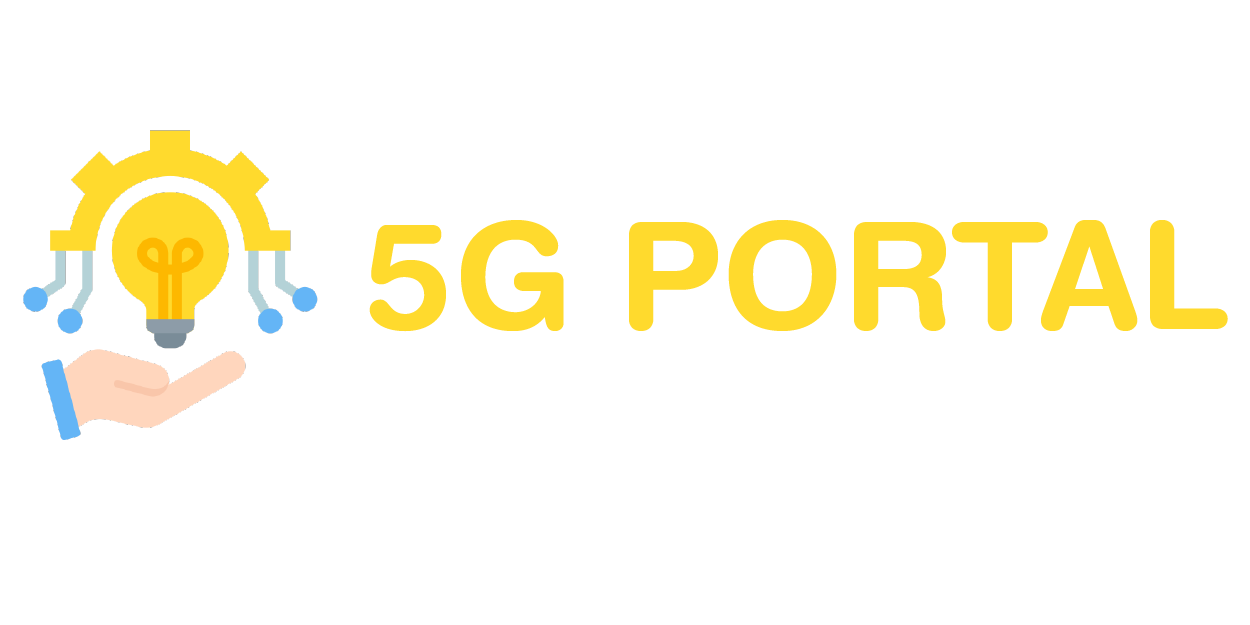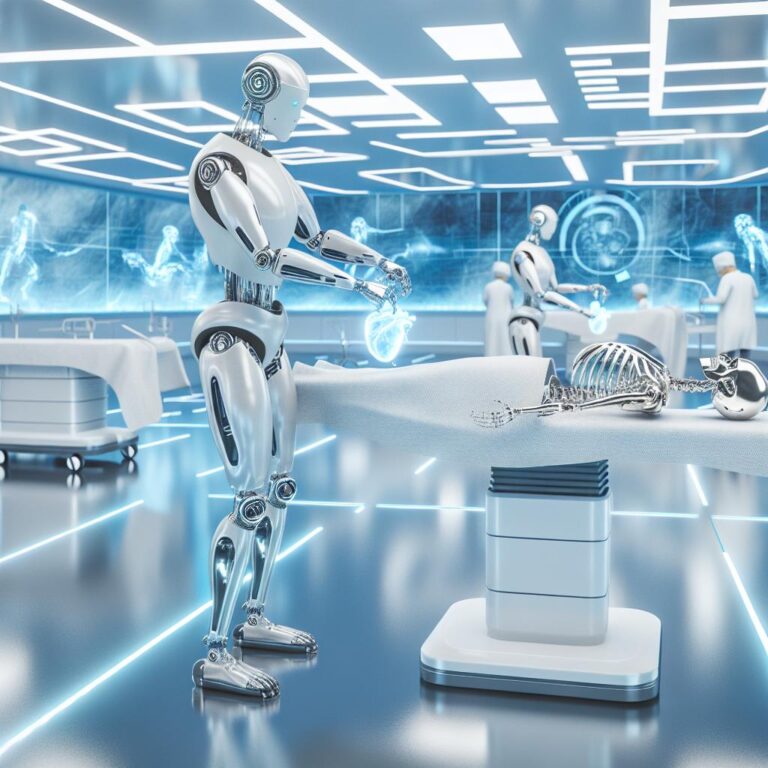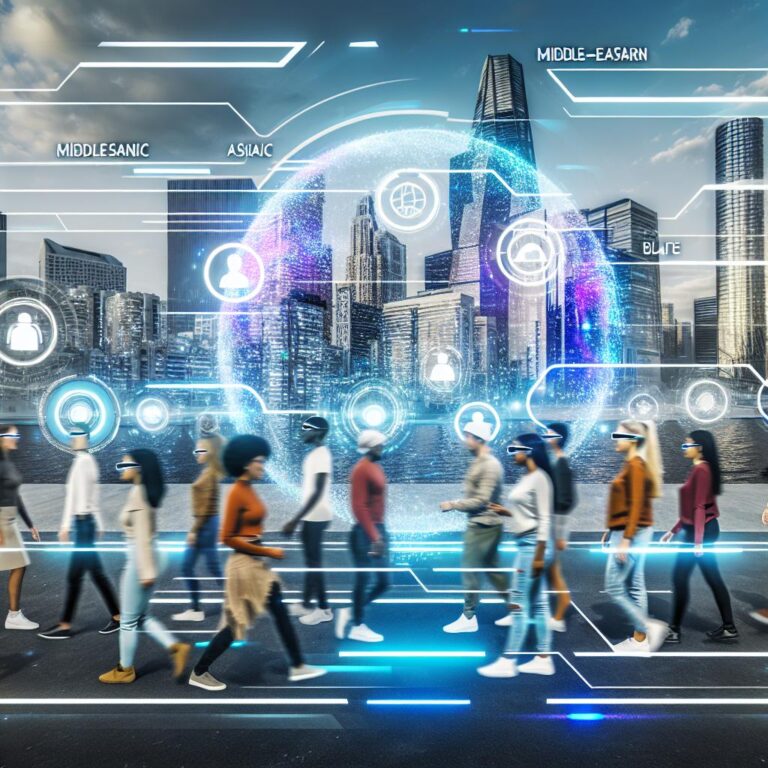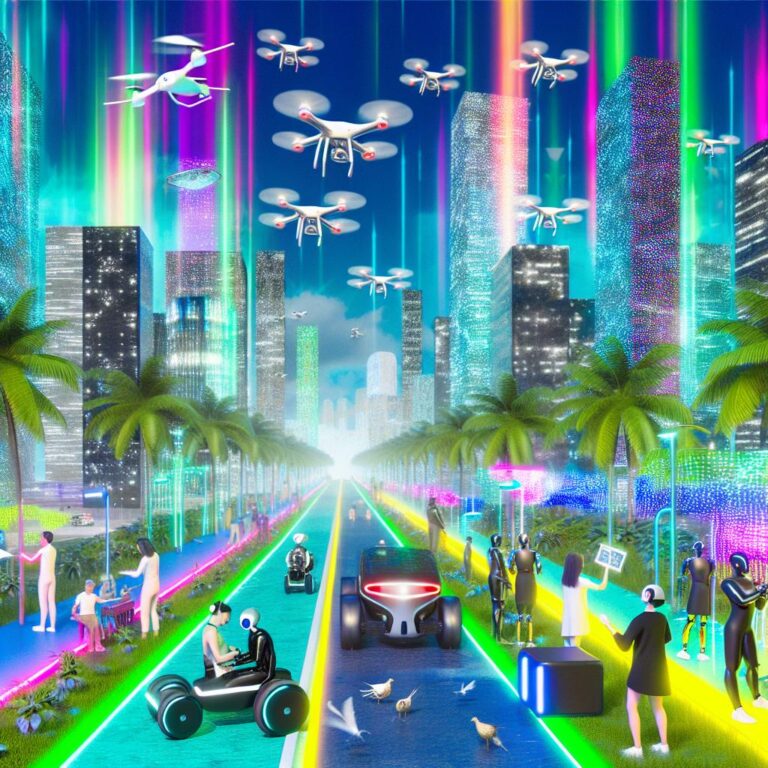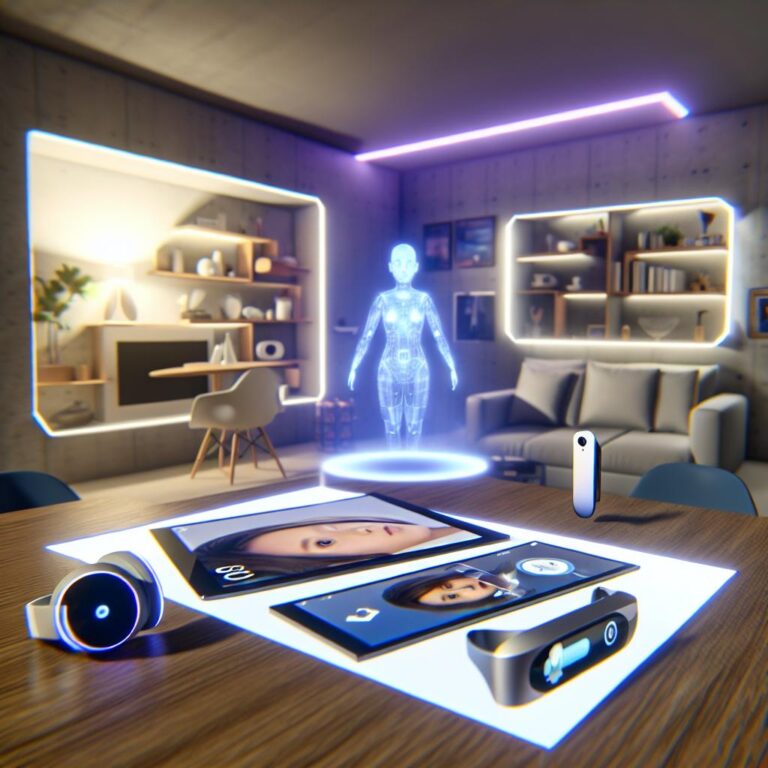English: Are Artificial Intelligence Advancements Changing Life?
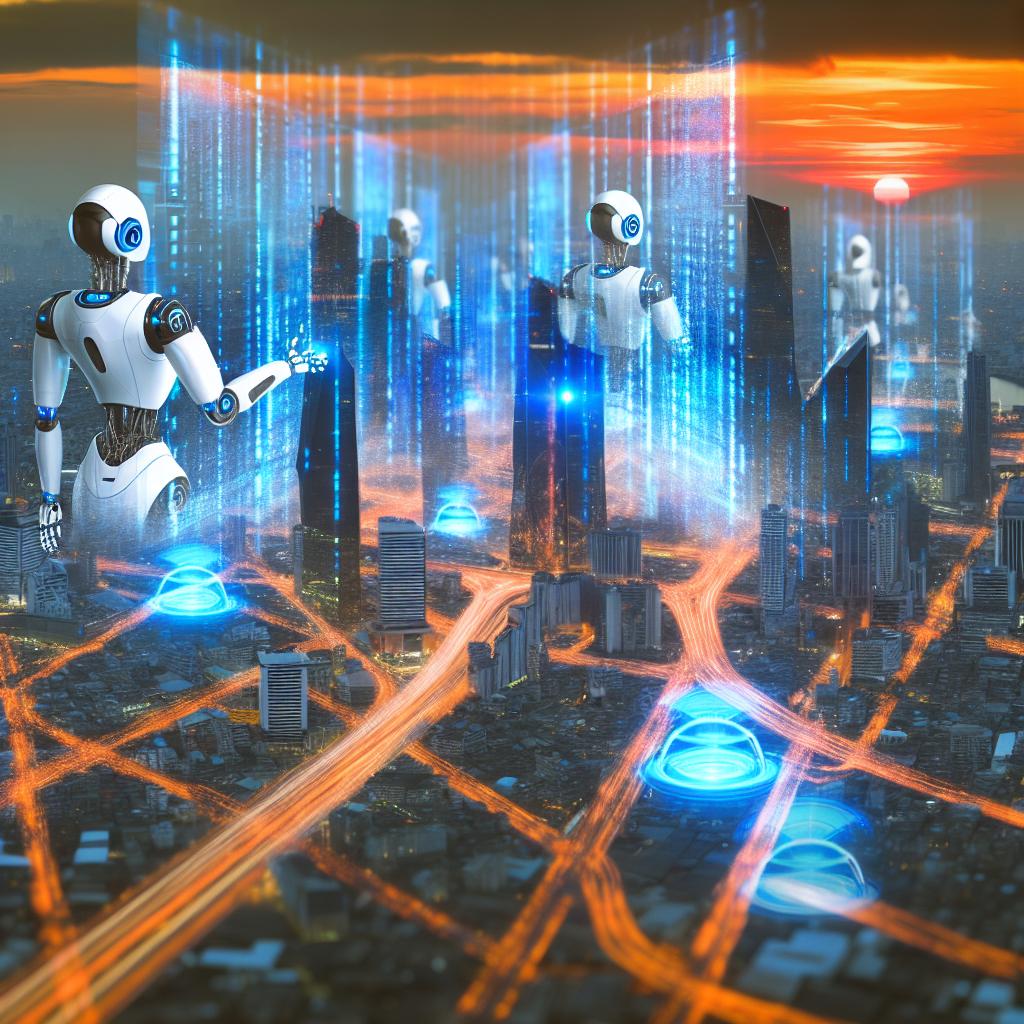
DR on Latest AI Developments:
- AI shows creativity in art, stories, and music, marking a new era.
- GPT-3 excels in generating human-like text.
- AI aids healthcare with better diagnostics and personalized treatments.
- Key breakthroughs include rapid protein design and "antibody cages."
- AI transforms industries with automation and enhances education with digital tutors.
- AI improves machine learning efficiency with self-learning systems.
- Automation affects jobs, creating new tech roles and demanding adaptability.
- Ethical concerns include AI bias and data privacy.
- AI simplifies daily life, improves health outcomes, and supports safer driving.
- Future AI may revolutionize industries, requiring new skills and ethical guidelines to ensure fairness and safety.
English
Are Artificial Intelligence advancements changing our lives? Absolutely! AI is no longer just a buzzword; it's transforming how we live, work, and play. From healthcare innovations to machine learning breakthroughs, AI is at the forefront of modern technology. But how are these advancements shaping the future? Let's dive into the latest AI developments and see how they're redefining every corner of our world.
What Are the Latest Developments in Artificial Intelligence?

When I think about AI great leaps, some breakthroughs come to mind. Recently, AI has wowed us with its creative abilities. Systems can now create art, write stories, and even compose music. This capability marks a new era in AI's creative domain.
Generative AI models, like GPT-3, stand out. These models understand and generate human-like text. But that's not all. AI now helps in critical sectors like healthcare. It assists doctors in diagnosing diseases early and with more accuracy than before.
In the tech world, AI pushes the limits of what machines can learn. Continuous learning allows machines to improve over time, much like we do. This approach leads to smarter, more efficient systems.
Some AI advancements focus on security and privacy. People want their data protected. AI tools are getting better at detecting threats and keeping data secure.
What Breakthroughs Have Defined Recent AI Innovations?
Recent AI breakthroughs include rapid protein design in biotechnology. This leap helps save lives by developing new drugs faster. Archon Biosciences’ work on "antibody cages" stands out. These new forms speed up and enhance treatment options.
How Are New AI Technologies Changing the Landscape?
AI technologies now change how industries operate daily. Automation helps factories run smoother and cut costs. In transportation, self-driving cars are becoming more common. These changes lead to increased safety and ease of travel.
In sectors like education and customer service, AI improves experiences. Digital tutors help students learn at their own pace. Chatbots assist customers in resolving issues quickly.
What Role Do AI Advancements Play in Different Sectors?
AI advancements play a vital role across various sectors. In healthcare, AI offers tools for better patient care. AI systems predict health risks by analyzing extensive data quickly.
The finance sector uses AI to detect fraudulent transactions. It helps maintain the safety of banking systems. In agriculture, AI predicts crop yields and optimizes farming methods.
Each sector gains unique benefits from AI as it continues to grow. As we progress, AI will likely open new opportunities we can't yet foresee.
How is Artificial Intelligence Impacting Healthcare?
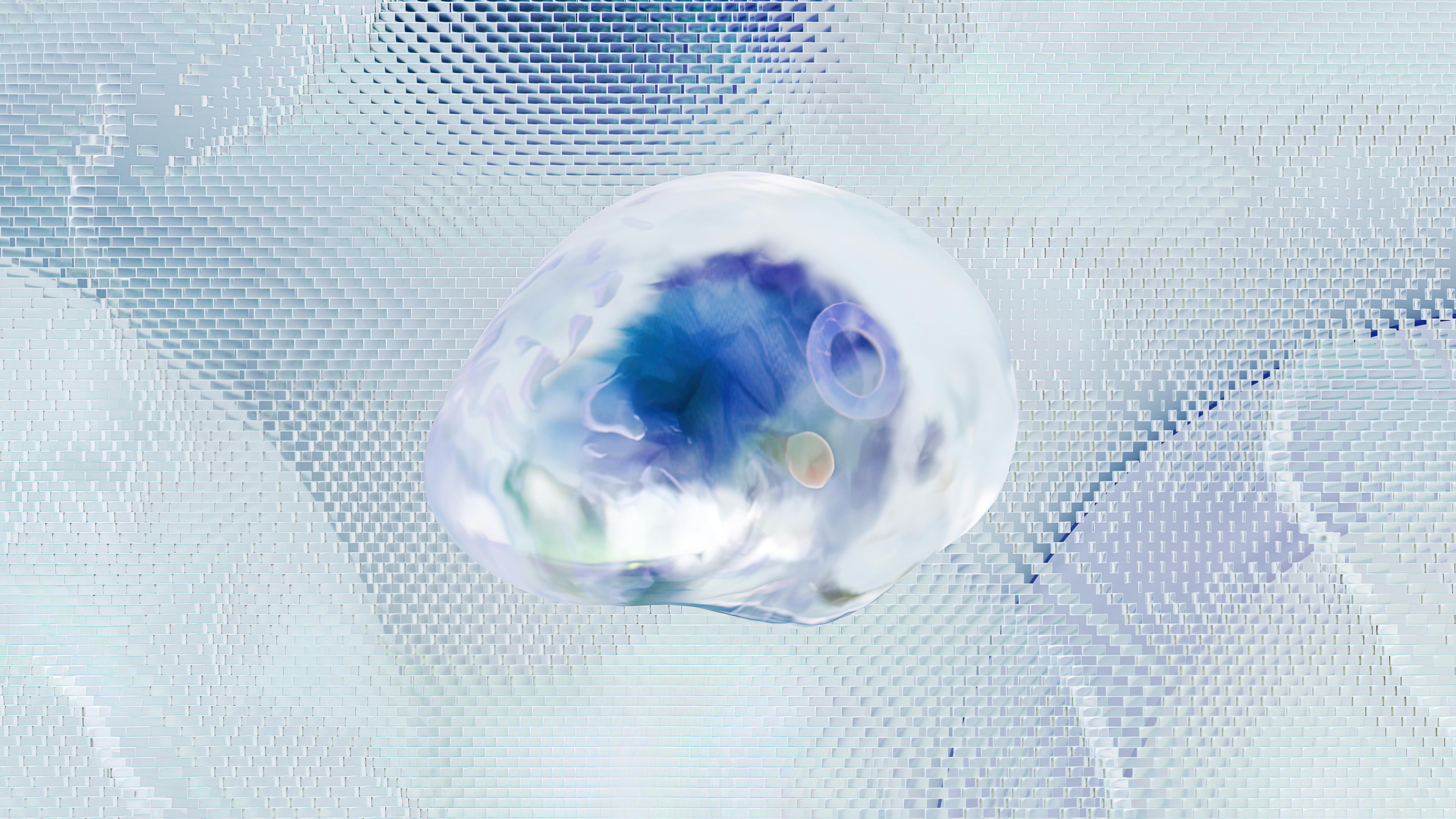
Artificial intelligence is reshaping healthcare in many ways. It helps doctors detect diseases quicker and more accurately. A recent report shares some exciting AI tools that are improving diagnostics.
What New AI Tools Are Transforming Medical Diagnostics?
AI tools like image analysis software look at X-rays and MRIs. These tools find things doctors might miss. For example, AI can spot tiny spots in lung scans that could mean early cancer. The tools improve patient outcomes by making early treatment possible.
AI also works in labs, analyzing complex data. It speeds up processes we once did with human eyes, saving time in emergencies. With AI’s help, more accurate data comes faster, leading to better treatments.
How Is AI Revolutionizing Patient Care and Treatment?
AI impacts care beyond diagnostics, it helps guide treatment too. Personalized treatment plans are one of AI’s remarkable achievements. It analyzes patient data to tailor plans that best suit individual needs.
An exciting development is in biotech, like Archon Biosciences' "antibody cages." They use AI to make treatments more effective. By clustering antibodies, AI improves how they work on illnesses. This leads to significant advances in drug development and patient recovery.
AI also helps doctors learn and train faster. By simulating real-life care situations, it provides practice for dealing with tricky cases. This enhances doctors' skills, resulting in better patient care.
What Challenges Do AI Solutions Face in Healthcare Implementation?
Implementing AI in healthcare is not without its hurdles. One big challenge is the need for huge amounts of data. Accurate AI relies on a lot of information. Collecting this data takes time and strict privacy measures.
Another challenge is getting everyone on board. Doctors, nurses, and patients must see AI as a helpful tool, not a threat. Training healthcare staff to use AI technology is vital for smooth integration.
Also, AI systems need constant updating. Medical knowledge and technology change fast. AI programs must keep up to remain useful and accurate. Despite these challenges, AI holds promise for transforming healthcare in meaningful ways.
How is AI Advancing Machine Learning Techniques?
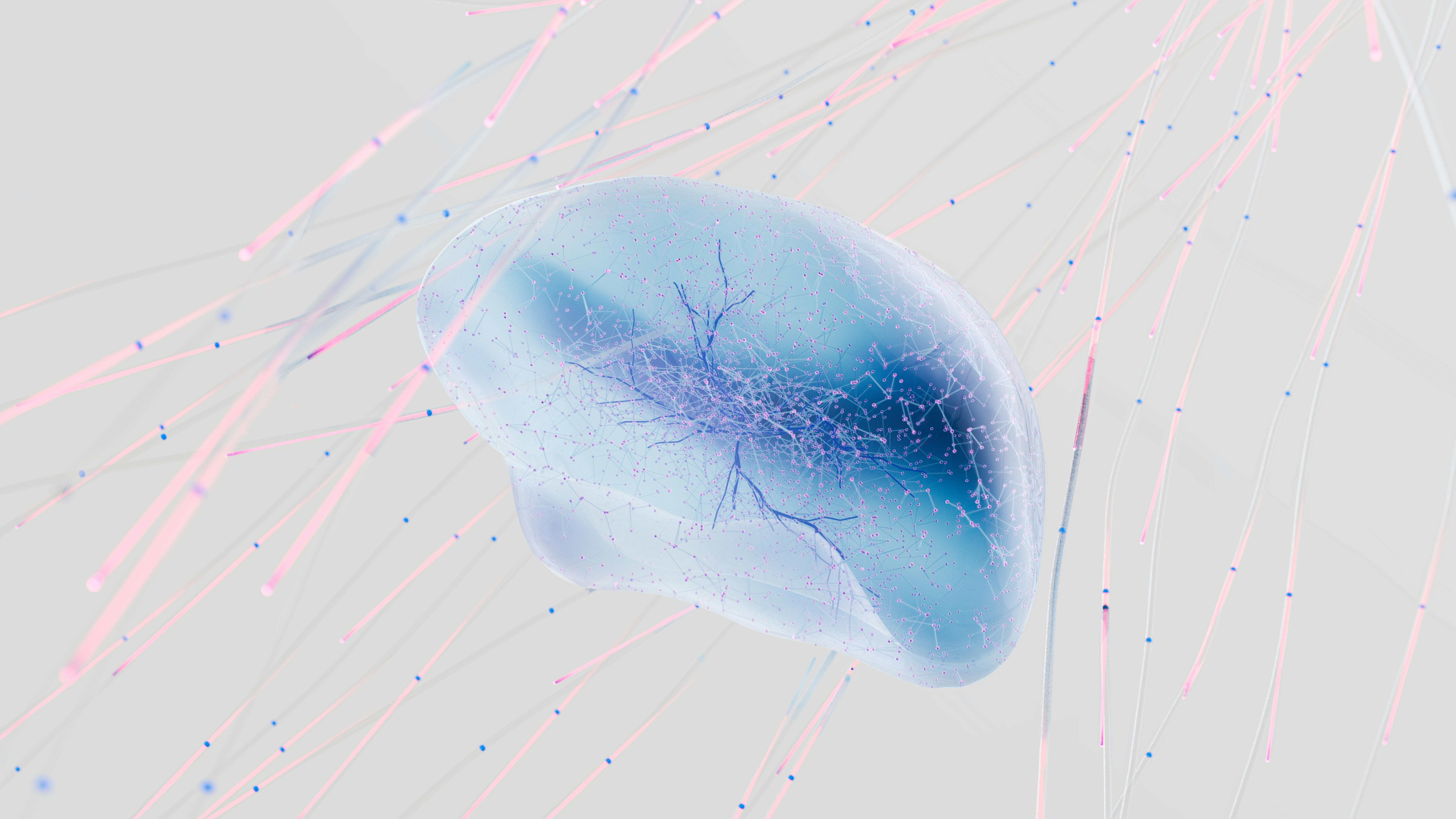
What Are the Latest Trends in Machine Learning?
In machine learning today, data is king. Machines now process huge amounts of data. This helps them learn fast and get very smart. Deep learning, a subset of machine learning, plays a big role. It uses layers of neural networks to think like the human brain. With each layer, the machine improves its understanding.
How Does AI Enhance Machine Learning Capabilities?
AI supercharges machine learning by making it better and faster. Machines with AI analyze data patterns, making predictions more accurate. AI powers self-learning systems. These systems improve over time without human help. By integrating AI, machine learning systems can tackle complex problems. AI adds a layer of intelligence, making machines not just learn, but think.
What Examples Demonstrate AI's Role in Machine Learning?
Imagine AI and medicine working together. Archon Biosciences, a company using AI, designs smart proteins. These "antibody cages" boost treatments. Their AI-driven design improves antibody binding, leading to better health solutions. This practical use shows how AI changes fields beyond tech.
AI reshapes how we view machine learning by enhancing capability and efficiency. Understanding these advancements helps us grasp the role of AI in transforming society.
What Does the Future Hold for AI and Technology?
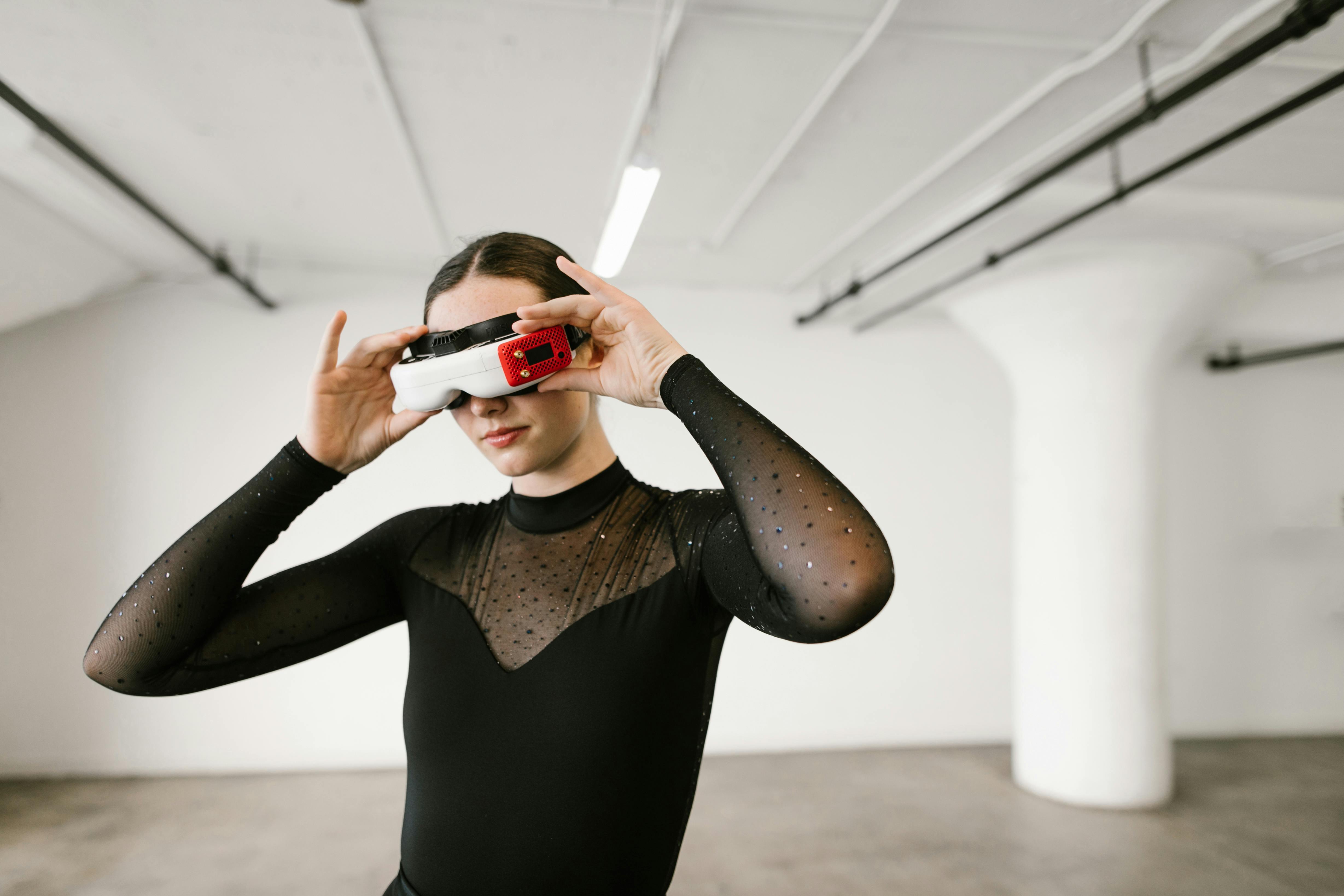
What Predictions Exist for the Next Decade of AI?
Experts predict AI will get much smarter soon. We might see robots help doctors perform surgeries. AI could also boost how cars drive themselves. More AI could support teachers in classrooms too. Imagine robots helping with hard tasks or keeping us safe. Our homes might listen better and learn our daily needs. AI could protect our data and make online spaces safer. These AI changes seem exciting for all of us.
How Might AI Technologies Evolve Over Time?
As AI grows, we will see more changes everywhere. Machines will learn faster and solve problems quicker. They might even understand our feelings better. Some tools will create music or art. Self-learning software might find cures for illnesses. Factories will use robots for more tasks. We could work side by side with machines more often. AI might make jobs easier and more fun at the same time. Computers will talk with us in new languages or ways. Over many years, AI will fit into all areas of our lives.
What Impact Might Future AI Developments Have on Society?
Future AI may feel like magic in everyday life. Some jobs might change, needing new skills. But, AI could create more jobs too. Health care might be quicker and cheaper. AI could help us live healthier lives. Learning might become more fun with AI as a buddy. Farms might grow more food with less effort. Our homes will be smarter and greener. AI could help us solve tough problems like pollution. There might be debates about how to use AI right. If used well, many people will benefit, making life better.
What Ethical Implications Arise from AI Advancements?

AI developments are stirring many ethical questions. How do these advancements challenge our existing ethical norms? AI tools can now make decisions that once were human-only tasks, like hiring employees or diagnosing illnesses. This shifts the balance of responsibility and control. Companies might rely too heavily on AI, ignoring its biases and errors. We need to act carefully as these tools take on bigger roles in important fields.
What debates are emerging around AI and ethics? The big question is about bias. AI systems learn from past data, which may contain hidden prejudices. If unchecked, AI can repeat and amplify these biases. There's also the concern of privacy. AI collects and analyzes massive amounts of data, raising issues about how this information is used.
How can ethical guidelines keep pace with AI progress? Constant and clear ethical codes are vital. Regulations need frequent updates to address new AI challenges. Collaborations between tech creators, ethicists, and lawmakers can help craft rules that reflect today's fast-changing AI environment. Educational resources and discussions around these guidelines can also spread awareness and understanding.
AI ethical implications remind us to think hard about the ethics of AI usage. It's about making sure AI serves everyone fairly and safely. We face the task of balancing progress with moral duty, ensuring that AI advancements improve life while respecting human values.
How is AI Affecting the Human Workforce?

How Is Automation Impacting Job Markets?
Automation is a big game-changer for jobs. Many tasks that people used to do are now done by machines. In factories, robots can build products faster and with fewer mistakes. Some stores now use machines instead of cashiers. You might hear about automation in driverless cars taking over delivery jobs. But it’s not just low-skill jobs; even some tasks in office jobs are automated too.
What Roles Are Emerging Due to AI Integration?
New job roles have come up to work with AI. People are needed to code and keep the AI running well. There are data scientists who study huge amounts of information to help businesses win with AI. AI ethics specialists make sure AI is used fairly and safely. Also, many industries need AI trainers to teach systems how to learn and improve. These new roles show how AI is creating different job opportunities.
How Can Workers Adapt to an AI-Driven Environment?
Workers can adapt by learning new skills. Taking classes on computer basics is a good start. You might want to learn coding or how to use AI tools. Understanding science, engineering, and math can help, since these fields work a lot with AI. Some companies offer training to improve tech skills too. Being flexible and ready to learn helps people stay current. Learning how to work with AI is like opening new doors in the world of jobs.
To learn more about how AI workplace integration affects workers, you can explore various resources online. They provide deeper insights into new skills and roles emerging in today's tech-driven world.
What Are the Best Examples of AI Transforming Society?
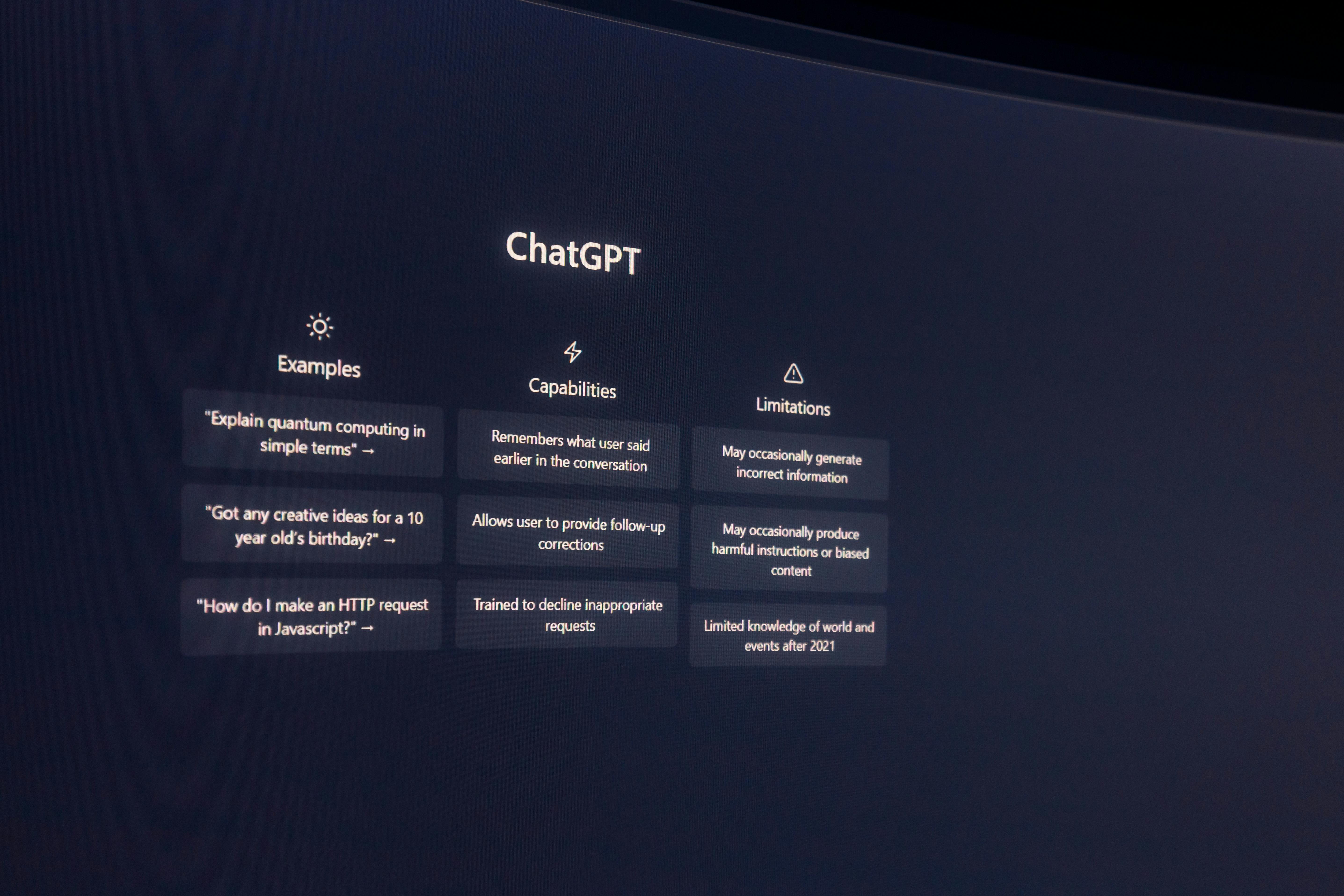
AI helps in many ways. It makes complex tasks simple and quick. Think about how often AI tools boost our lives.
How Is AI Enhancing Everyday Life and Routine Tasks?
AI makes daily tasks easier and faster. Smartphones use AI for voice assistants that help find things or send messages. AI adjusts our homes' temperatures, saving energy. In cities, AI helps traffic move smoother by changing light timings.
In What Areas Is AI Proving Most Beneficial?
AI shows its power in health, travel, and learning. In health, AI helps find signs of disease sooner. In cars, AI aids in driving safely and avoiding crashes. Schools use AI for custom lessons that fit how a student learns best.
What Strategies Are in Place for Society's Adaptation to AI?
Training for new skills is key as AI grows. Programs teach people to work with AI, ensuring they keep up. Research groups plan the future, making technology serve everyone better. This focus aims to smooth the path as AI becomes more common in daily life.
Conclusion
We've explored the world of AI, from breakthroughs to societal impacts. New AI tools transform healthcare and redefine patient care, while advancements drive machine learning. We've seen how AI shifts job markets and raises ethical questions. The future holds endless possibilities, with AI continuing to shape our society and economy. As we embrace these innovations, let's ensure ethical guidelines evolve, securing a balanced partnership between AI and humanity. Understanding these developments helps us prepare for a tech-driven world. Stay informed, stay curious, and embrace the AI wave.
